Tara | Writer & Artist | Occasional Book Reviewer | Taradactyls on Ao3 | Australia | Queues everything
Don't wanna be here? Send us removal request.
Text
Thanks for recommending me! Love how comprehensive this list is.
Outing myself here on main, but the absolute BANE of my existence is the fact that I cannot find proper Pride and Prejudice smut.
#one day I'll get more smut out lol but until then I hope everyone joys cravat shenanigans#ao3#fanfiction
76 notes
·
View notes
Text
We did it, anon, your idea for penis cravat lives on.
Thanks for recommending me!
Outing myself here on main, but the absolute BANE of my existence is the fact that I cannot find proper Pride and Prejudice smut.
#also 'among the author's early attempts at smut' it is very literally the FIRST ever#I hadn't even ever written a kissing scene#so I'm just honoured it's worthy of being mentioned tbh#ao3#fanfiction
76 notes
·
View notes
Note
I recently discovered, through my mother, the trilogy starting with "An Assembly Such as This". I thought the first book was fantastic and delved into the next two with gusto, only to come out the other side somewhat dismayed at the characterization and underlying implications and themes. As someone who tends to take fastidious note with those exact things and a keen interest in fanfic/Jane Austen, I was wondering if you'd ever read or heard of the trilogy yourself, and what you might think of it.
This might be surprising to hear, but I've actually read basically no JAFF... at all. The books are so satisfying to me that whenever I get an urge for Austen I've always gone back and reread them or academic essays about the literature/world! I wasn't even part of the Ao3 Austen fandom at all or doing more than rebloging gifs on tumblr until I started publishing T3W. So discovering the active fandom has been SUCH a joy of starting to write my own things :)
I've just googled that trilogy, and yeah there definitely seem to be mixed reviews. Probably inevitable with any reimagination of Austen's works, since we all have such firm ideas of characterisation, the most important themes, head canons, etc. I'd probably struggle to read it, tbh. I know I struggled with 'Lost in Austen' because of different interpretations and historical inaccuracies so I think I'm cursed to be too stuck to my own interpretations to be able to easily enjoy others that stray too far from canon, haha.
Also, since I 100% intend to write my own Darcy POV novel (might even be reusing some oc's from T3W, though they might need to be tweaked a little to serve different purposes) I stay away from anything like that, I don't want to be unconsciously influenced. Same with sequels (I have fairly developed plans for a sequel trilogy I'm very excited to eventually get to) so I haven't read much published Austen fanworks. But if you (or anyone else) has recommendations for in-character fics or books that don't fall into those categories I'd love to check some out!
#for someone who has 'occasional book reviewer' in their bio I have done exactly zero reviews#Maybe I ought to change that#asks#jane austen#pride and prejudice#fanfiction
6 notes
·
View notes
Note
I just renewed my Pride and Prejudice obsession by watching the 2005 movie again. I have never delved into the fanfiction part of this fandom before, but I have to say you have spoiled me so much with your excellent writing and immersion. I have eaten up Trying to Tread Water in only a few days, and I thank you for sharing your talent and research with us. Hope you and your family are well also ♥♥
Ahhh thank you so much! I'm so glad you enjoyed it. I'm just happy I get to share my story and research with people who understand my love for Pride and Prejudice, it's such a special experience!
Yes, we're (currently) all well (and all at once, for the first time in two or three months), and the twins are very excited to be in a new house and just loving life, which makes me happy to see.
And you've absolutely reminded me that I'm due for a rewatch of the 2005 movie. I'll need to invite some of the girls over so we can sit there and quote half the movie at each other instead of watching it quietly, haha.
#I hope you've kept looking through the fandom - there's a lot of great stuff!#I think I've watched 1995 twice since I last saw the movie so definitely time to enjoy the *experience* again and get swept up by it all#asks#fic:t3w
10 notes
·
View notes
Text
#wasn't there a point in the book where it's mentioned they didn't save money for their daughters because they expected to have a son?#and that it was too late to save anything substantial by the time they realised that wasn't going to happen#or something along those lines#and it's just like. what difference would that make?#why would him being able to (one day) inherit the house and income mean you shouldn't have to dower your daughters?#they should have been saving from the start regardless#did they think a son would just magically produce dowries from thin air? tags by @catasterisms
Yes, to most of that! And it's even worse than you think!
Chapter 50:
Mr. Bennet had very often wished before this period of his life that, instead of spending his whole income, he had laid by an annual sum for the better provision of his children, and of his wife, if she survived him. ... When first Mr. Bennet had married, economy was held to be perfectly useless, for, of course, they were to have a son. The son was to join in cutting off the entail, as soon as he should be of age, and the widow and younger children would by that means be provided for. Five daughters successively entered the world, but yet the son was to come; and Mrs. Bennet, for many years after Lydia's birth, had been certain that he would. This event had at last been despaired of, but it was then too late to be saving.
So, other than the whole 'YOU SHOULD HAVE BEEN SAVING FROM THE START' bit which even Mr Bennet is able to recognise, in hindsight, there's a bit here to break down.
It only actually talks about both the widow and younger children in terms being 'provided for' and wishing they had a 'better provision;' there's no terms like 'dowry,' 'portion,' 'fortune,' 'inheritance,' or anything else used to indicate the girls would be personally enriched, just maintained at a suitable level of comfort in his absence. Because of this phrasing, it seems to be that even in Mr and Mrs Bennet's ideal future planning they're not talking about giving their daughters an appropriate dowry. It's phrased far more like having the entail cut off would allow him to create a life-interest (such as a jointure, annuity, or remainder) on the estate so that a widowed Mrs Bennet and any dependant (underage or unmarried) children would have an income to live off - not a lump sum that's theirs and something they could bring to a marriage. After their interest in that provision ends (via death or marriage or however it was set up) it would likely revert back to the estate, so that it could continue to pass whole through the generations.
It's possible to debate that Austen meant the daughters would inherit some of the estate themselves or money from selling parts off, however small, instead of their hoped-for brother getting it all, but in Sense and Sensibility when Mr Dashwood hopes to do just that to ensure his wife and daughters are provided for it's very explicitly mentioned that "any charge on the estate, or by any sale of its valuable woods" are options. (Charge on the estate being a life interest of some variety). This isn't at all how Mr Bennet thinks of what his solution would be. Also, that line in Sense and Sensibility actually got push-pack from one of Jane Austen's own brothers, who hated the idea that the estate would be diminished for the benefit of Mr Dashwood's daughters - male-preference primogeniture really was considered the superior inheritance option at the time and any deviation of that could be met with horror. By the time she wrote Pride and Prejudice, perhaps she was less willing to challenge that structure, or, even if she was, felt Mr and Mrs Bennet weren't the sort who would.
Basically, it seems like no, they weren't expecting a son to produce dowries from thin air, because when it came to ensuring the widow and other children were provided for they were still thinking only in the short term ideas of maintaining their lifestyle rather than helping ensure they had the means (a suitable dowry of their own) to secure the best possible future for themselves! It's a mess!
And as to the "it was then too late to be saving" bit... not only does the emphasis that Mrs Bennet was the one who still held out hope imply that her husband might've realised it was possible his original plan would fail long before she accepted it and yet he didn't start planning for that, but there totally was still time to save.
MATHS TIME!!
That "for many years after Lydia's birth" I think we can reasonably say is five or six years just to put a number to it (and at Mrs Bennet's previous rate of 5 kids in about eight years, that's plenty of time to realise there's a problem somewhere and it's not going away) and that gives us 10 years to use to calculate what potential savings would be at the time of the novel. Keeping everything at the 4%s, because that's what it's stated to be in the novel and, whatever the real world uncertainties of interest and banks, Austen was writing works of fiction and this is what she chose to be canon.
Option A (Bare Minimum): stop spending the interest of the £5,000 settled on Mrs Bennet by the marriage articles.
At 4% over 10 years the amount of money they have is now: £7,401.
Not a massive amount of money, but when you think of it in the context of it increasing their wealth by 50% you can imagine the difference it would make.
(This is also, if they save all the money they spent on keeping Jane, Elizabeth, and Lydia clothed, fed, etc, what they might be able to save in the 10 years following the novel with no loss of lifestyle or cutting back on their own expenses).
Option B: Saving the £5,000 interest and an extra £100 a year from the estate.
They now have a sum of £8,602, which would give about £344 a year interest - still a genteel poverty amount, but a big step up from the £200 a year amount that they have in canon.
Option C: What about £200 a year saved (or 10% of the estate's income, which is what I see recommended most often) and the interest of the £5,000?
We get £9,802. In less than a year that'll be a clean £10,000. Not a huge fortune for the girls individually, but twice as rich as before and zero risk of homelessness even if they get no family support (though they would). This is the tight, but manageable, finances that the Dashwood women are living off of for most of Sense and Sensibility, and the dowry which made Mary King (as its sole heir) an appealing prospect for Mr Wickham.
Option D (Actually being proactive... and thus would never happen because it would impact Mr and Mrs Bennet's comfort too much): The £5,000 pound interest saved and an additional £400 a year (20% of the estate's income - a number that some sources do recommend).
A lump sum of £12,204, or an eventual £2,440 for each daughter. Still not a suitable dowry, but in the 4%s it would bring in almost £100 a year and so, if they marry a clergyman or anyone where money might be tight, they might not be costing their husbands money (living to Darcy or Bingley standards would still make marrying them a financial loss, but then with those levels of money it hardly matters). Which could be the difference between an a respectful, affectionate match, and the gentleman deciding that he simply can't afford to marry a Bennet daughter.
And lets not forget that Mr Bennet may've been barely of age when he married so impulsively - he could be as young as mid 40s! But even in his 50s it's still not unreasonable to expect him to live another ten years. Since saving shouldn't end just because daughters get married (and there's no guarantee Kitty and Mary will marry well or at all, and a bigger inheritance would certainly help Lydia) lets add another ten years to each of those calculations to see what Mrs Bennet would have to live off if she's the survivor, or what the daughters would inherit if not.
Option A:
£10,956 or about £438 a year for Mrs Bennet (comparable to Miss King, who was courted by Wickham because he felt her fortune would support him), and about a £2,191 lump sum and £87 a year for each individual daughter if split equally.
Option B:
£13,933 or about £557 a year for Mrs Bennet, and about £2,786 or £111 a year split five ways for the daughters.
Option C:
£16,911 or about £676 a year for Mrs Bennet - a good amount! This is more than Mr Collins is presently estimated to have, and a similar amount to Jane Austen's father himself at the peak of his wealth. It puts a widowed Mrs Bennet in the top 2% of society (a drop from the top 0.2% she was when they had Longbourn, but still nothing to be sniffed at). At about £3,382 split five ways, or about £135 a year, it's not an amazing dowry for the girls, but it makes them more than three times richer than they actually are and I feel this and option B are the two most reasonable to have expected Mr and Mrs Bennet to be able to achieve if they'd actually tried. It would give almost an extra £100 a year than their canon wealth, which, for the daughters with tight finances, would make a world of difference. It's also (just) richer than Catherine Moreland of Northanger Abbey, whose fortune is treated as small but not horrific (though it's also a dowry and given immediately upon marriage, rather than something to be inherited later, unlike the Bennets and the others on this list), and more than the Dashwood girls of Sense and Sensibility, and even Anne Elliot of Persuasion, will one day have.
Option D:
£22,867 or about £914 a year - and so just like that, Mrs Bennet is richer than Miss Bingley. If Mr Bennet died now and Mrs Bennet never saved another penny she would live very comfortably and even be able to afford a carriage! As I've said, I don't think this amount of saving would happen, but it is possible and apparently not unheard of for others of their income. If Mrs Bennet has already passed at this point and the daughters get an equal inheritance, that's about £4,573 each or about £182 a year. It's still not the £6,000 that it seems they should've had as dowries, but they're inheriting more than their mother did from her father! Still not actually as a dowry, so if money was an immediate concern a man might not propose unless he reached a favourable negotiation with Mr Bennet (as happens with Wickham agreeing to marry Lydia with one condition being £100 a year while Mr Bennet lives), but it's a decent amount and would completely remove everyone's concerns over the financial situation once Mr Bennet dies.
But of course, none of this matters, since Mr and Mrs Bennet probably won't save anything now they can pass the responsibility of keeping a widow and poorer children supported to the very rich and responsible Mrs Bingley and Mrs Darcy. I can only hope Jane and Lizzy have a chat with their father, and persuade him to start putting something away for the benefit of the younger daughters, because clearly this maths proves that every little bit counts and it's never too late to begin.
If Mrs Bennet was indeed the only one 'doing something about the situation' like I often see argued when Pride and Prejudice is discussed... surely she would have spent frugally to ensure her daughters had substantial dowries? Surely she would have employed governesses to educate her daughters to ensure they had the accomplishments necessary to enable them make a successful marriage? Surely she would not have relied on desperate schemes to throw her daughters in front of eligible men and instead allowed them to be judged on their merits?
And yet...
We are told in Chapter 50 that Mrs Bennet has 'no turn for economy,' and only Mr Bennet (a waste of space himself, mind you) prevents them from exceeding their income,
Elizabeth tells Lady Catherine in Chapter 29 that 'we never had any governess' and that 'those who chose to be idle, certainly might.' So even in the absence of having someone around at Longbourn who was entirely dedicated to the girls' education, no pressure was exerted upon them to study... and Elizabeth smilingly reassures Lady Catherine that Mrs Bennet was not a slave to their education,
In Chapter 18, thanks to 'a manoeuvre of Mrs. Bennet,' the party are the last to depart after the Netherfield ball and 'had to wait for their carriage a quarter of an hour after everybody else was gone.' Which is not only rude but highly embarrassing... but she really wanted Bingley and Jane to spend a few extra minutes together, just to make sure...
As you see, there were plenty of opportunities for Mrs Bennet to ensure her daughters were better prepared to find husbands. Yes, in marrying Mr Bennet, she married 'up,' and so might not have had these advantages herself (and Mr Bennet does share some of the blame).
But it's honestly somewhat of a miracle that Jane and Elizabeth turned out so well and were able to make such good marriages, even in spite of such a calamitous upbringing...
#I WAS SUMMONED BY THE OPPORTUNITY TO DO SOME COMPOUND INTEREST#austen opinions#jane austen#pride and prejudice#mr bennet#mrs bennet#discourse
424 notes
·
View notes
Note
I’m also camp “Darcy probably has had little, if any, sex” for all your reasons and because he kind of comes across like he thinks someone below him socially is too inferior to engage with in any kind of intimacy, and anyone at his level he would respect their social standing too much to sleep with them without marriage. Like, he could pay for sex, but he’s probably not seducing anyone since he’s unwilling to be very polite to his less high standing gentry acquaintances in their own homes by the time of the novel.
Also the closer to you to the novel the more you have his sister nearly having her life ruined by a man sleeping with her, so I suspect he’s less willing to make any choices that may reflect badly on her, even a little bit
I think this got temporarily eaten by my inbox, sorry!
(Referring to this post for those new here)
Yeah, honestly the more I sit with it the more reasonable it seems that he probably was a virgin when he married. And then I've been learning about other men (like Prince Albert, husband of Queen Victoria) who actively rejected sex when taken to a brothel, and it didn't impact their status negatively or (openly, at least) get treated as a huge deal or *so strange* even if it wasn't the norm, so virgin gentlemen might not be such an outlandish thought as modern historical fiction has treated it. I knew the amount of reformed rakes in modern books was unrealistic, but didn't really question the idea that 'of course every gentleman had had at least a little premarital sex' until I started thinking about when and who in regards to Darcy and then doing a bit more historical research.
I'm afraid my days of thinking about this fictional man's sex life are far from over.
#There really are SO many different reasons people have thought of for why he might be a virgin#it's definitely not an outlandish proposition#asks#pride and prejudice#jane austen#fitzwilliam darcy#feel bad tagging jane austen in this not sure she'd approve of speculation about Darcy's sex life#but then... I wrote the cravat penis smut for Darcy x Elizabeth... so I think her approval is out the window lol
30 notes
·
View notes
Text
Found something interesting for Pride and Prejudice fans relating to Elizabeth's takedown of Mr Darcy's perception of himself a gentleman.
I'm reading Thomas Fuller's 'The Holy State, and the Profane State' (published 1642 but this version republished in 1841 so the views were clearly still applicable) for a research essay, and in the chapter labelled 'The True Gentleman' he states:
He is courteous and affable to his neighbours … the truly generous are most pliant and courteous in their behaviour to their inferiors.
And of course, during the Hunsford proposal, Darcy has just objected to Elizabeth's family, she's called him out, and we get the iconic lines:
"Nor am I ashamed of the feelings I related. They were natural and just. Could you expect me to rejoice in the inferiority of your connections?—to congratulate myself on the hope of relations, whose condition in life is so decidedly beneath my own?" "You are mistaken, Mr. Darcy, if you suppose that the mode of your declaration affected me in any other way, than as it spared the concern which I might have felt in refusing you, had you behaved in a more gentlemanlike manner."
So Elizabeth drops that bomb just after he's been ungenerous and discourteous about her inferior relations... in direct contradiction of one of the rules of true gentlemanly behaviour. No wonder he can't rebut her words at all in the moment, even though Darcy later says "it was some time, I confess, before I was reasonable enough to allow their justice." He might not believe he's got a real problem yet, but there's been examples Elizabeth could call on from even during the course of their conversation too blatant for him to disagree with entirely!
And then later, obviously, he reflects and finds it's true he also hasn't been gentlemanlike in this and other ways in too many aspects of his life.
#poor man had his entire sense of self demolished by one phrase (he deserved it)#Fuller has lots of other good things about what it means to be a gentleman (some of which I mentioned in T3W) so definitely#check it out if you like reading primary sources since I'm *pretty* sure it's open to everyone#I have access to more scholarly articles and books again and I'm having SO MUCH FUN#(I've made my essay about gentility and class in Emma and Great Expectations - more specifically money vs education and birth#- which is research I've done before for fun so I'm finding it very fulfilling doing a deeper dive)#pride and prejudice#jane austen#elizabeth bennet#fitzwilliam darcy#austen opinions#discourse
70 notes
·
View notes
Text
She also:
Didn't actually do her due diligence on suitors (happily encouraging the flirtations of Kitty and Lydia with officers in the militia without meeting the men, knowing anything of their character, let alone their family or prospects), and in that vein...
Allowed and sometimes encouraged behaviour which hurt the respectability of her daughters and thus their marriage prospects.
Plus, if her fervour over getting her daughters married was about ensuring their fiscal safety in the future (which, as you referenced, she and Mr Bennet should have been able to do themselves if they saved even half the amount of money that would be expected for their income - see A New System of Practical Domestic Economy (1928) for great breakdowns of recommended expenses and savings at different income levels and here or here for where I've applied maths to the Bennets specifically) she should've been concerned about (or at least aware of!!!) the difficulties Lydia would have married to debt-prone Wickham. Instead, she's completely unrealistic about their income (Chapter 50) and thinks the marriage is a fantastic achievement.
But, if not proactive about their fiscal security, is she at least proactive about hoping they marry for their personal happiness's sake? Well, not if her treatment of Elizabeth turning down Mr Collins is any indication; and if she had any ability to reflect on what sort of partner would prove a good husband likely to support her daughters' long term happiness she probably would've been concerned for Lydia marrying Wickham, instead she fawns over him and boasts of the marriage when they visit.
And if worried about their futures, preparing them for realistic prospects is the least she should've done. But two of her girls definitely aren't thinking about money in regards to who they like at all, economy isn't encouraged with their own money (given "the continual presents in money which passed to [Lydia] through her mother's hands") and she didn't teach them how to assist in the kitchen (chapter 13) which, frankly, they should've been taught.
Mrs Bennet fails to consider her daughters' futures or prepare them for it in every meaningful way, and it also bugs me when her anxiety over their future poverty is taken as 'doing something about the situation' when really it's just unproductive stress about a situation she exacerbated. Then, rather than doing anything productive about it, she chooses to push the stress of the issue onto her children rather than inconvenience herself and does that in an unproductive way too, which also makes everything worse. Instead of raising a finger to fix any of the problems she helped cause, she would rather Elizabeth is in an unhappy and loveless marriage for purely for financial reasons (which, whilst not an unheard of stance, was actually frowned upon by most contemporaries despite modern perceptions of Georgian marriages being made primarily for mercenary reasons. Most sources I've read actually promote love/affection within suitable bounds of fortune, status and character. Jane Austen herself wrote to her niece "Anything is to be preferred or endured father than marrying without affection," and an extremely popular conduct book, Letters on the Improvement of the Mind by Mrs Chapone, published 1773 and republished every few years for decades thanks to its continued relevance, says "Far be it from me to advise you to marry where you do not love;—a mercenary marriage is a detestable prostitution," so Mrs Bennet's behaviour in regards to Mr Collins wouldn't necessarily have been viewed sympathetically by contemporaries). In fact, it's implied she wouldn't approve the marriage if it was to a child she liked more: "Elizabeth was the least dear to her of all her children; ... the man and the match were quite good enough for her." Which weakens the argument that her urgency to see her daughters married at all costs was genuine concern for their futures. And, given how celebratory she is over Lydia's imprudent marriage, it seems less likely that Mrs Bennet first priority is securing her daughter's fiscal comfort but rather to see them married at all. It's like she thinks any of her daughter's marriages is automatically recreating the success of her own (arguably the greatest achievement of her life - jumping up a social class wasn't easy) without any consideration of the elements that made her marriage so advantageous.
Plus, the Bennet family is actually really, really rich for the era (here's a great video breakdown of that with sources listed in the description). And so the Bennet girls didn't have to have small dowries, they didn't have to have uncertain educations, just as they didn't have to be allowed to figuratively run wild with "that total want of propriety so frequently, so almost uniformly betrayed" by most of the family, nor have limited understanding of the sort of income they'd expect, no practical skills to help with household management, no ability to judge suitors or oversight in socialising with them, etc etc. These are all failings of both parents but also problems Mrs Bennet directly contributed to.
Just... yeah. It's great that perception of Mr Bennet as a witty supporter of Elizabeth is becoming more nuanced by recognition of the ways he failed his family, but the tendency to therefore absolve Mrs Bennet of her own shortcomings as a parent or justify them in response really bugs me. She was a bad parent in many ways. They both were. That's the point, they failed their daughters and Jane almost losing Bingley, and Lydia (at only 16!!) permanently being stuck with Mr Wickham are consequences. There's enough blame to be appropriately given to both.
That there's a level of justification for her fears doesn't absolve her of her culpability for the problems she causes, it humanises her.
If Mrs Bennet was indeed the only one 'doing something about the situation' like I often see argued when Pride and Prejudice is discussed... surely she would have spent frugally to ensure her daughters had substantial dowries? Surely she would have employed governesses to educate her daughters to ensure they had the accomplishments necessary to enable them make a successful marriage? Surely she would not have relied on desperate schemes to throw her daughters in front of eligible men and instead allowed them to be judged on their merits?
And yet...
We are told in Chapter 50 that Mrs Bennet has 'no turn for economy,' and only Mr Bennet (a waste of space himself, mind you) prevents them from exceeding their income,
Elizabeth tells Lady Catherine in Chapter 29 that 'we never had any governess' and that 'those who chose to be idle, certainly might.' So even in the absence of having someone around at Longbourn who was entirely dedicated to the girls' education, no pressure was exerted upon them to study... and Elizabeth smilingly reassures Lady Catherine that Mrs Bennet was not a slave to their education,
In Chapter 18, thanks to 'a manoeuvre of Mrs. Bennet,' the party are the last to depart after the Netherfield ball and 'had to wait for their carriage a quarter of an hour after everybody else was gone.' Which is not only rude but highly embarrassing... but she really wanted Bingley and Jane to spend a few extra minutes together, just to make sure...
As you see, there were plenty of opportunities for Mrs Bennet to ensure her daughters were better prepared to find husbands. Yes, in marrying Mr Bennet, she married 'up,' and so might not have had these advantages herself (and Mr Bennet does share some of the blame).
But it's honestly somewhat of a miracle that Jane and Elizabeth turned out so well and were able to make such good marriages, even in spite of such a calamitous upbringing...
#me standing on a soapbox to cheer OP and then needing to shout more supporting evidence of their point#'Mrs Bennet was totally justified actually' is probably one of the top three most common misconceptions that I see which bug me#jane austen#pride and prejudice#mrs bennet#mr bennet#william collins#elizabeth bennet#discourse#austen opinions
424 notes
·
View notes
Text
I live! Still in the trenches in terms of busyness and random difficulties popping up (plus needed extensions on my final essay, which'll be done in a few days and then I'm on break), but life's been good just hectic and occasionally plagued by illness. It's flu season in Australia :(
And since I have nothing else new to share, here's the miniature I did the one time I was able to get to art class this entire term:


Trying to Tread Water Chapter 45 Updates
(and the Kitty/Col Fitzwilliam anon I haven't forgotten you I've got a rough draft sitting there waiting to be finished!)
There's a little bit written for both Chapter 45 and the small Beneath the Surface bonus content for Chapter 44 but not enough to get excited about.
I also haven't really been online much for the last fortnight so I'm sorry if I've missed anything! Still pretty much in the middle of half the stuff I mentioned in my authors note last chapter - more day care plagues, and moving and another essay all happening within the next week so AHHHHHHHHHH. Stress.
But also yay for me I got a great score on my last essay and I argued with the real estate agent and (successfully) asserted my rights even though sending and receiving the emails had me physically shaking for hours. Gotta keep your spine strong no matter how fragile your nervous system is. That's your motivational speech for the week, haha.
#'Why didn't you paint the closer gum tree?' Because I wasn't feeling sadistic next question haha#I wasn't trying to make it blend in with the landscape but it's a happy accident#one art class and no writing in over a month... I'm DESPERATE to be creative#thanks for your patience everyone's been lovely <3#fic:t3#art#painting#landscape
53 notes
·
View notes
Text
Now on Ao3 because someone wanted to add it to their bookmarks and that was just too kind to ignore
It's thinking about Darcy desperately yearning running into Elizabeth at Pemberley hours.
Like, you fell in love with this woman, but rationally (pridefully) you though it wasn't something you should pursue. But you can't forget her, and then she's at Rosings... and the more you see her - with her wit, her eyes, the liveliness of her mind - the more she undoes every expectation of who you should marry that you'd ever had. You prolong your trip to see more of her, you start imagining what it will be like married to her and unwisely after only seeing her again for a week begin asking how she'd feel living far away from Longbourn, and even hint things like she'd be staying at Rosings next time she visits Kent.
It's too much. You're feeling too much.
She's due to visit for tea the night before you take leave, and an evening gives far more opportunity for privacy and conversation than sitting in Mrs Collins' drawing room for half an hour the next day.
But she doesn't come, she's feeling ill, and you won't see her. If you don't make an effort, you might never see her again. It's not like Bingley will be going back to Netherfield anytime soon, after all.
You bail on the evening and go check if she's ok.
It's late, but you have to see her.
She's not super friendly when answering your questions about whether she's feeling better, yet that's to be expected when someone has a headache. But she's there, sitting with you quietly, and then you're so agitated that you begin pacing.
It's inescapable. You love her too much.
You'll marry her, and deal with all the impropriety of her family's connections and behaviour. She's worth it.
Because of course she'll say yes. You've been so open that she must be expecting your addresses. It doesn't occur to you that you're wrong to assume she's wishing for it.
Then she rejects you.
And she doesn't only reject you: she shatters your entire perception of self. Not immediately - oh, she creates a large crack, but it takes some time for you to do justice to her words. But they linger, inescapably.
"Had you behaved in a more gentlemanlike manner."
You're bitter, and angry, and hurt, and offended, and the sense of doubt isn't going away. But there is one thing you can do, that you have to do.
You write her a letter to explain yourself against the accusations she levied your way - some unjust, but others will eventually gnaw at you until you're forced to face them and stare directly at all the faults you didn't know you had.
You know it won't make her accept you.
The turn of her countenance you'll never forget, as she said that you could not have addressed her in any possible way that would induce her to accept you.
But you need to write the letter: to explain, to warn, and maybe - just maybe - make her think a little better of you.
If she even gives credit to anything you say.
She thinks so little of you she might dismiss your arguments and only hate you more for what you said of her family.
God, you basically insulted her family again in the letter. With an apology, yes, and as an explanation, but you knew at the time that those comments and what you divulged of Wickham would give her pain. But it's necessary. You still believe that, even as time goes on and you begin to wonder if all it achieved was making her hate you more.
The last time you saw her was as you handed her that letter.
She hadn't spoken.
You weren't yet master of your emotions enough to see her and be friendly, the best you could do was try be composed.
If only you'd been truly as calm and composed as you thought you were when you wrote that letter. You can see now that you wrote in a dreadful bitterness of spirit. There were some expressions you used, the opening of it, which alone would be enough to justify her hate. Though, despite your emotions, you never doubted for a moment in her goodness - never doubted that she won't spread around what you divulged of your sister.
She hates you, but all the reasons you love her are still there.
That's something that doesn't change as you slowly unravel the flaws her reproofs revealed to you and you try to become the person you always thought you were. So many behaviours, and the emotions that governed them, were not what they ought to be. Your principles were always good but you followed them in pride and conceit.
You were blind until she cut you to the quick. Opened your eyes to yourself and taught you such a hard lesson - but it was for the best. She properly humbled you and taught you how insufficient all your pretensions were to please a woman worthy of being pleased. Even if you never see her again you will be worthy of the title gentleman.
You will work to become the person you want to be.
Her rejection doesn't hurt so much as the knowledge that she was right and you failed yourself and so many others. Any anger or blame you felt for her words when refusing your hand are long since passed. If she had been able to overlook those flaws she wouldn't have been the woman you love.
The more you reflect and seek to rectify your behaviour the clearer it all becomes. In trying to understand yourself you realise that so many of these flaws have existed almost your whole life. And yet, despite how obvious it now seems, you had no idea.
Though your parents were good themselves they spoilt you - first as an only child, then as an only son - and you grew selfish and overbearing, caring only for your small family circle. Thinking meanly of the rest of the world, wanting to think meanly of their sense and worth compared to your own.
You owe the world so much better.
Your position, far from giving you leave to treat others as inconsequential, means you have a duty to think of others and ensure they are not wronged. Yes, you've done that broadly - especially on your estate, and always with servants and the poor - but what of in smaller ways, to those closer to your own rank? Have you directly treated them with civility and respect?
You know the answer now, but you're doing your best to fix it.
For almost four months, you ruminate on her words and turn yourself into a gentleman you can respect. Someone worthy of the respect you've so rarely had to actually earn. Someone who might've been worthy of her respect from the beginning.
You've never stopped loving her.
Almost four months, and you're not sure if you'll ever see her again.
You certainly weren't expecting to leave the stables after arriving at Pemberley and find her standing in front of your house.
Your eyes meet.
You freeze in place.
Four months of distance and then twenty yards away from each other.
She's blushing (so are you).
Your brain is too surprised to work.
She's here.
She's here and you're just standing there.
You have to go to her. Even if you didn't still love her, it's the polite and friendly thing to. (But you do still love her, and so her presence is a physical weight in your chest that you could scarce resist).
She had turned away briefly, but turns back when you approach.
You hardly know what you say, she hardly raises her eyes to meet yours, but you hear her voice, and she doesn't sound annoyed when she answers that her family is well.
Honestly, despite how discomposed you are by seeing her without time to prepare, your instinct is to stay by her. Even if it means speaking like a fool. You're pretty sure you ask her when she started travelling and how long she's been in Derbyshire at least thrice. But you start to recollect yourself, breathing a little more evenly, and run out of things to say. Remembering that she's here with friends and you've just come from the road, you take your leave.
Your thoughts stay with her though.
She was still just as lovely as ever. More civil to you than you have any claim to.
Your housekeeper says a gentleman and two ladies were taking a tour of the house, and have now gone with the gardener to see the accustomed part of the park. You know the place.
As your valet helps you change your thoughts solidify: you can meet them, and, through every civility in your power, show her that you aren't resentful of the past.
She's so close, and you can't lose this chance to perhaps obtain her forgiveness, lessen her ill opinion, by showing that her reproofs have been attended to.
And, maybe, you're just desperate for any excuse to see her.
By now, you've been in love with her for more than eight months, despite trying, really trying, to forget her both when you left Hertfordshire and Kent. It's pointless, either you'll recover in time or you'll spend the rest of your life in love with her. At this point you don't even want to fight it. Despite the pain of her not feeling the same way, she did you the greatest good anyone could, by showing you who you really were. You improved yourself because you should, without any expectation of seeing her again, but one thing that you can't alter about yourself is your love for her.
Right now, what matters is being near her and showing her you can be a real gentleman.
So, you follow her and her companions to the stream.
She speaks first this time. Putting herself forward to be friendly and polite. Proof, surely, that she doesn't hate you so much anymore? She's almost her usual smiling self, though she goes red and silent while admiring Pemberley's beauty.
You can understand why - you had determined to not ask whether she liked your home in case it sounded like you were wondering whether she regretted rejecting you and thus Pemberley. You know she didn't mean anything by her praise (and she'd known you were rich when she turned you down) but you understand her sudden embarrassment.
Although... when did she start caring that you might misunderstand her and think badly of her? She didn't care the last time you met.
But that's not important now. It's for you to ease the conversation and prove yourself. So you change the subject, and ask her to do the honour of introducing you to her friends.
Her surprise is obvious, and fair. Seeking the acquaintance of strangers, even respectable-looking ones, just wasn't something you used to do regardless of what the well-bred and civil action was.
And what does it say about you - with all your newfound respect and civility - that you're still surprised when the fashionable couple she's with turn out to be the very aunt and uncle you'd previously declared would be a disgraceful connection. You recognised you were wrong to be so dismissive, so rude, but the core assumption that the tradesman brother of Mrs Bennet and his wife must be noticeably vulgar had clearly remained. Yet here they were, everything elegant and well-bred.
How right Elizabeth had been about you.
But now you can show her that was the past, and your manners are improved and prejudices lessened.
You walk back with them, talking to the uncle, who has intelligence, taste, and sense. You like him a surprising amount. He points out trout in the water, and you're glad to invite him to fish here while they stay in the area. You have all the supplies he might need, and know the best spots. As you speak with him your attention is only half distracted by who walks behind you at a short distance.
Hopefully her uncle's happiness makes her happy also.
You have the chance to see, when the walking arrangements change and then she's the one walking beside you.
Honestly, you're not immediately sure what to say, but again, she speaks first.
Yes, she almost certainly doesn't hate you anymore.
Her explanation that she'd been assured of your absence before visiting sounds more like she doesn't want you to think her rude, than expressing disappointment that you are here.
Yes, whatever her past insults, she definitely cares that you don't think badly of her...
As though you ever could.
In mentioning why you returned a day early you mention who you're with, and too late saying Bingley's name reminds you that the last time you two spoke of him was when she (rightfully) blamed you for separating Bingley and her sister.
That silences you for a moment - but she doesn't respond with anger.
Composing yourself, you ask if your sister might be introduced to her. You've spoken of Elizabeth so highly to Georgiana, and so often, that your sister would love to meet her. You don't need to ask - your sister is the social superior, her wishing for the acquaintance is strictly enough for the introduction to be made - but you want to. You mean it, when you ask Elizabeth whether you're asking too much by facilitating the introduction. You want her to have the chance to say no.
But she says yes.
(Even sounding pleased about it, though surprised.)
Which is also a yes to seeing you again during her stay at Lambton. Renewing your acquaintance, despite everything.
The happiness, however irrational, this creates cannot be quelled.
You love her too dearly to not appreciate every fragile overture and sign that she must no longer think you so bad. The letter - your own improved civility - one or both has done away with her dislike.
Replaced it with... well, anything other than dislike is a place to begin.
This time the silence stretches as you walk; she, perhaps, just as lost in thought as yourself.
You could get used to walking around Pemberley with her.
A dangerous thought.
You scarce know what to say as you wait by the carriage for her aunt and uncle to catch up, after she declared herself not tired when you asked if she wanted to come into the house. But, again, she makes the effort to talk to you. You've never spoken of Matlock or Dovedale so persistently, but you want to keep talking to her - hearing her voice - receiving her smiles - for every moment that you can steal.
Four months apart and then the first day seeing her again your heart loves her more than ever before.
And she no longer hates you.
You would have them all come inside, take refreshment, stay, please stay a little longer, but they felt it was time to return to the inn. They're leaving, but you've already organised to bring your sister to see her the day after tomorrow, so it's only a short parting.
Not another four months.
You hand her aunt up into the carriage - and then Elizabeth.
Who is dearest and loveliest to you still, though you might never be able to say those words to her.
You're so aware of feeling her hand in yours, though gloved; the weight and warmth of it. The brief tightening of her fingers on yours as she takes the step up, leaving you bereft when she lets go.
You don't watch them drive away, though you feel her absence palpably as you slowly walk back to the house.
But it's only two days - two days before you'll see her again.
And they're staying for a little while.
All of it is more chances to show her the person you are now. Both the good qualities you never properly revealed before, and the newer ones deliberately acquired to remedy the errors she revealed. Show her you're a man she might admire.
Perhaps a man she might one day be able to love.
It's almost embarrassing, to admit how quickly that wish introduced itself after seeing Elizabeth again.
It probably took under half an hour after you saw her again.
#pride and prejudice#jane austen#elizabeth bennet#fitzwilliam darcy#elizabeth x darcy#fanfiction#fanfic#ao3#archive of our own
980 notes
·
View notes
Text
Not much to update yet: successfully moved house despite being very sick, over that sickness except for a lingering cough, still writing when I get the chance (I've been more productive in the last week than the entire month and a half before that) but it's awhile off, I did get a high distinction for that essay I mentioned above (yay!) and I've got another bigger one due in the second week of June.
I'm a lot less stressed though and feeling pretty good about everything! But I'm sorry for all the delays, thank you for checking in on me <3
Trying to Tread Water Chapter 45 Updates
(and the Kitty/Col Fitzwilliam anon I haven't forgotten you I've got a rough draft sitting there waiting to be finished!)
There's a little bit written for both Chapter 45 and the small Beneath the Surface bonus content for Chapter 44 but not enough to get excited about.
I also haven't really been online much for the last fortnight so I'm sorry if I've missed anything! Still pretty much in the middle of half the stuff I mentioned in my authors note last chapter - more day care plagues, and moving and another essay all happening within the next week so AHHHHHHHHHH. Stress.
But also yay for me I got a great score on my last essay and I argued with the real estate agent and (successfully) asserted my rights even though sending and receiving the emails had me physically shaking for hours. Gotta keep your spine strong no matter how fragile your nervous system is. That's your motivational speech for the week, haha.
#oh and we discovered a water leak in our house this morning so that's fun lol#I'm so sorry for anything I've missed on here I'm hoping to go through and check but I apologise if it's buried under other notifications#also also also while I was in bed sick I marathoned a fantasy tv show on a whim and it changed my brain chemistry for a solid week lol#none of the songs are in English but I've added them to some playlists anyway#always nice to find a hyperfixation when you're real sick so you have something fun to think about at least while you're useless in bed hah#my brain wasn't up for reading books but it could cry over pretty people in pretty clothes having an enemies to lovers arc#but yeah no more uni lectures or tutes for awhile and moving house stuff should all be done so looking forward to writing more often again
53 notes
·
View notes
Text
Off my meds (antibiotics finished) and back on my bullshit (being a functional human being)
#still pretty fatigued and the coughing isn't ideal but doing a lot better so fingers crossed I'll be back to normal soon#also I'm so sorry if I missed anything here I haven't been online really at all because of everything going on
18 notes
·
View notes
Text



#lmao#he created like half of his most effective opponents#star wars#anakin skywalker#darth vader#ahsoka tano#r2d2#c3po#princess leia#memes#humour
210K notes
·
View notes
Text
may the horse be with you
#queued this for 12:01am on may the fourth but it's august now so let's see if i remember this or it makes me laugh again in surprise#the lord of the rings#jrr tolkien#eomer#memes#humour#films
10K notes
·
View notes
Text
Trying to Tread Water Chapter 45 Updates
(and the Kitty/Col Fitzwilliam anon I haven't forgotten you I've got a rough draft sitting there waiting to be finished!)
There's a little bit written for both Chapter 45 and the small Beneath the Surface bonus content for Chapter 44 but not enough to get excited about.
I also haven't really been online much for the last fortnight so I'm sorry if I've missed anything! Still pretty much in the middle of half the stuff I mentioned in my authors note last chapter - more day care plagues, and moving and another essay all happening within the next week so AHHHHHHHHHH. Stress.
But also yay for me I got a great score on my last essay and I argued with the real estate agent and (successfully) asserted my rights even though sending and receiving the emails had me physically shaking for hours. Gotta keep your spine strong no matter how fragile your nervous system is. That's your motivational speech for the week, haha.
#I'm currently sick and sleep deprived and have a bit of a manic spirit has possessed me as I pack my life into boxes#i now understand why everyone is so adamant they find their forever home BEFORE having kids#moving with toddlers???? Not it#but a forever home is this economy??? Also not it#we got incredibly lucky though so I can't serious complain#hope everyone is doing well!#fic:t3w
53 notes
·
View notes
Text

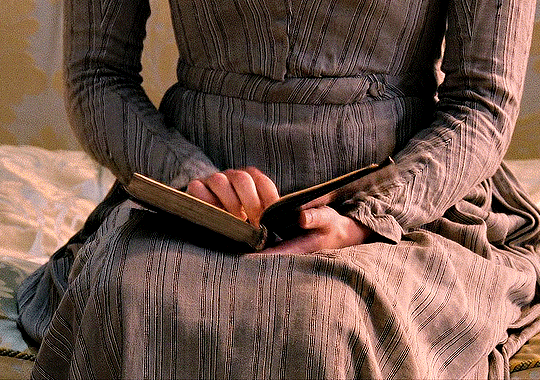

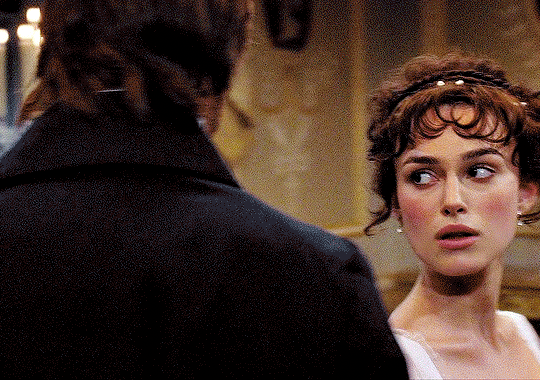

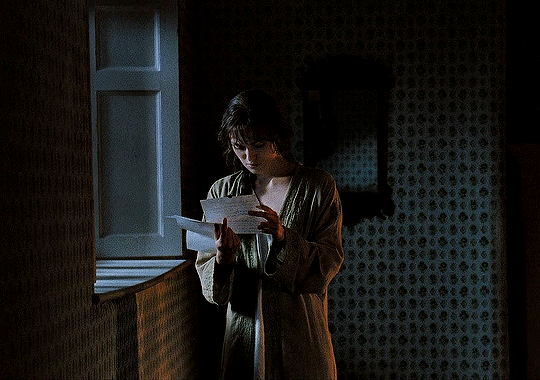

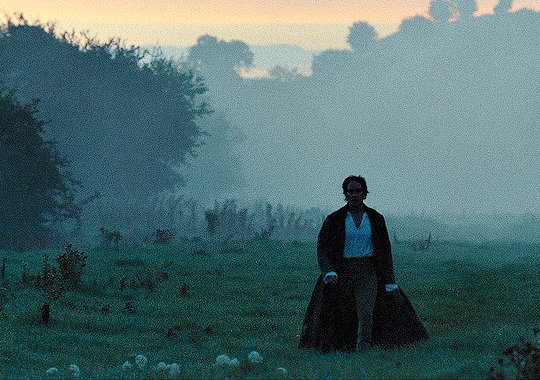
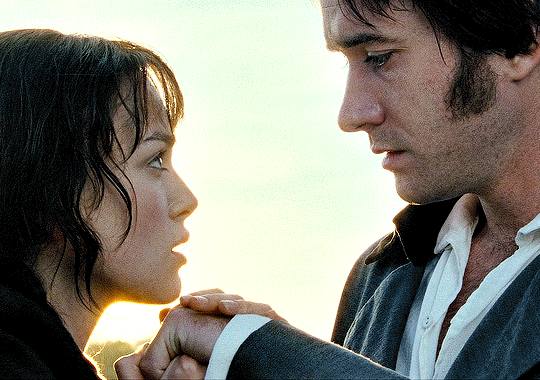
pride & prejudice (2005) → moments that hit different in the theater
#pride and prejudice#jane austen#pride and prejudice 2005#elizabeth bennet#fitzwilliam darcy#elizabeth x darcy
735 notes
·
View notes
Photo



Here’s my full piece for the “Classics but Make it Gay” zine which Kickstarter has officially launched now! 😳✨
38K notes
·
View notes